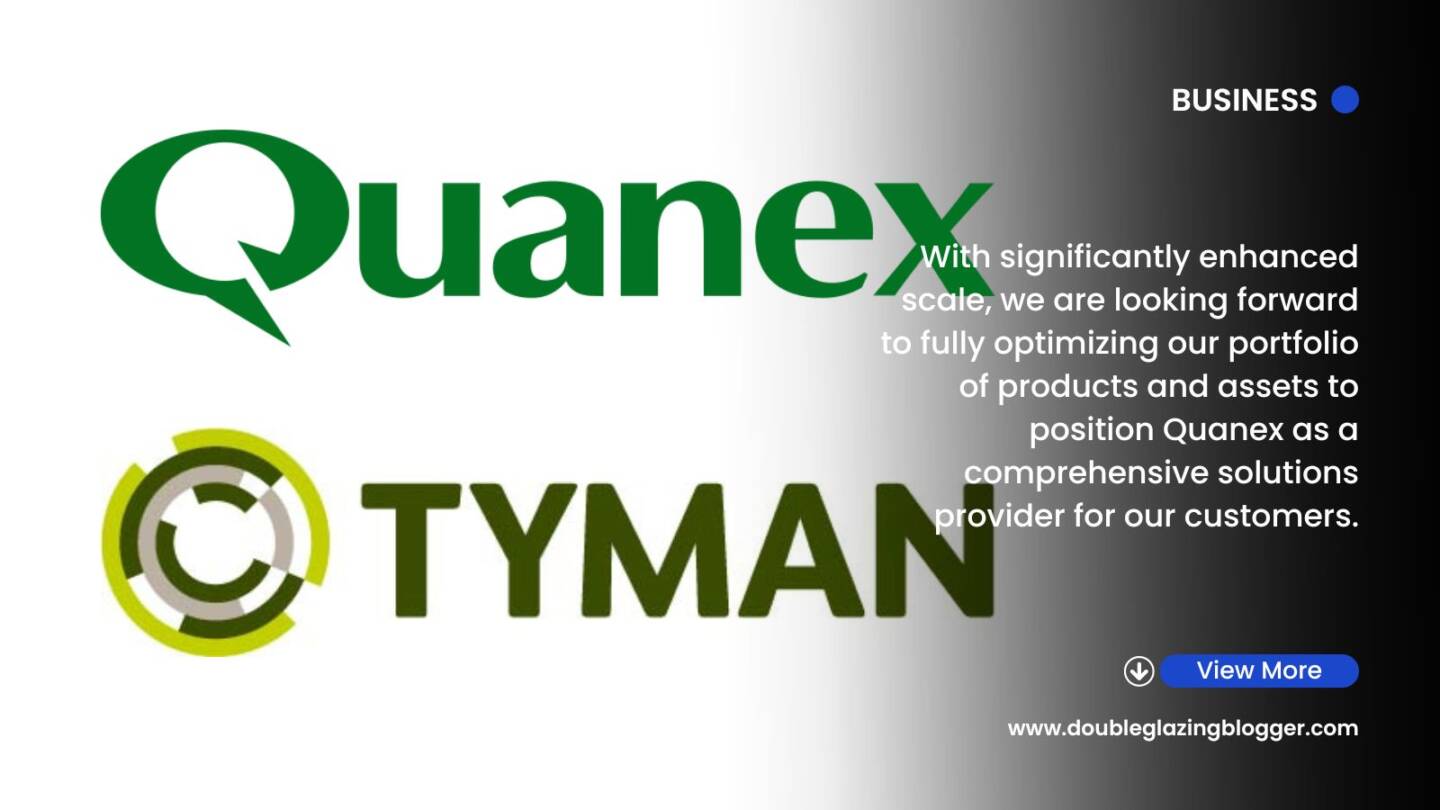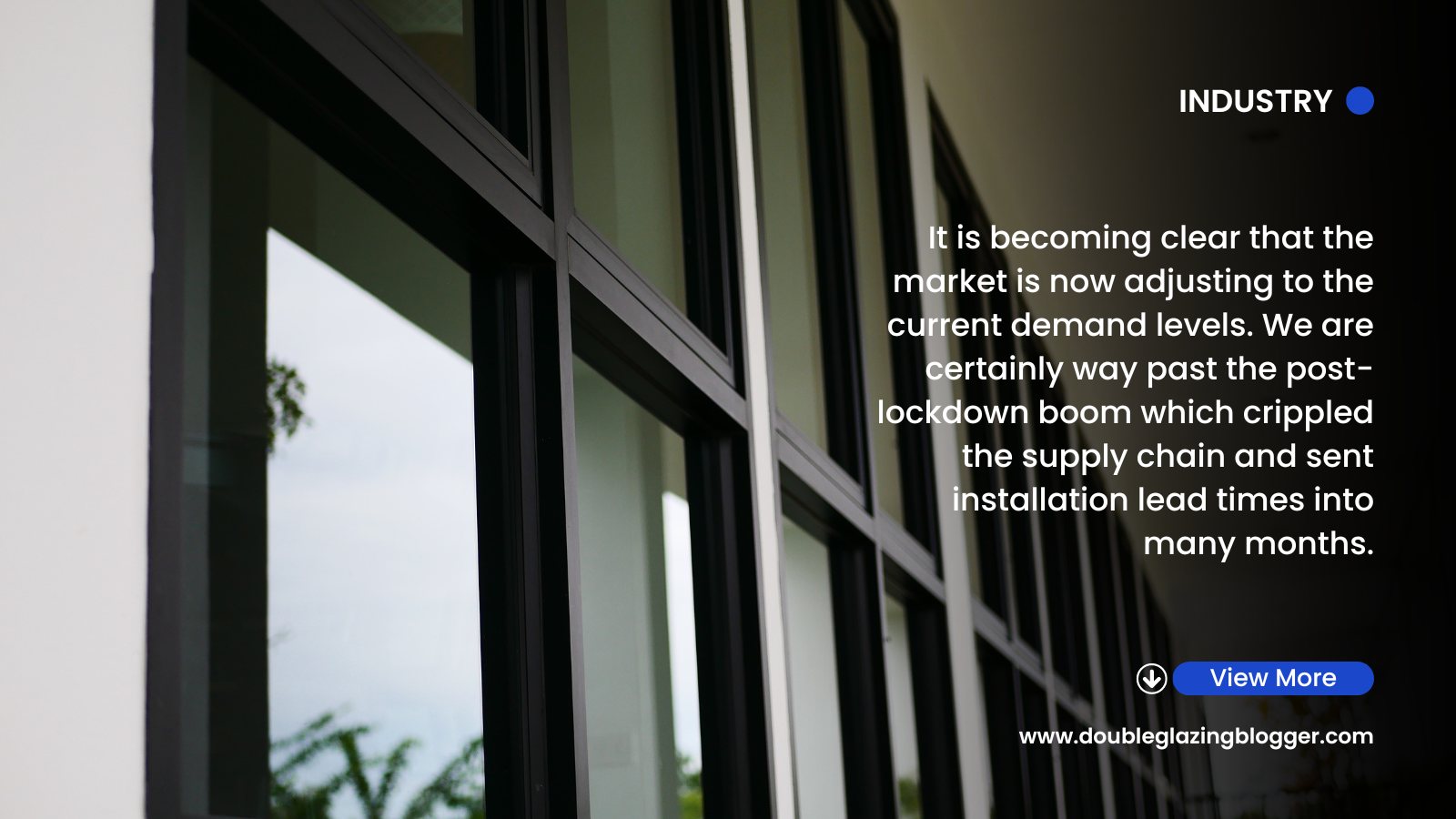Tuesday marked exactly one year since the start of lockdown as the UK, as with much of the rest of the world, battled to keep COVID at bay. A sombre moment for the entire nation as we remembered those who have been taken from us, the family and friends who mourn loved ones, and the NHS and key workers who have been heroic in their efforts during this pandemic.
This is my look back at lockdown and the pandemic over the past year both from a personal and professional perspective.
Testing
The atmosphere in March of last year was one of foreboding and unfamiliarity. I remember January and February to be quite normal. The pandemic at the time was a problem only for China and a handful of other countries. The biggest issue at the time in fenestration was the dwindling supply of hardware as China shut down completely and good ceased to leave the country. We were all still going to the pub, going to school, seeing family and friends, going on holiday. Everything that you could consider normal life.
COVID-19 wasn’t yet a huge story. But as each week passed, and the spread of the disease hit other countries, including cruise ships, there was a growing sense that at some point gravity of what was unfolding was to become known before too long.
Against a backdrop of a country trying to continue as normal, global markets were in freefall. UK and European markets would drop hundreds of points per day. In the US, the Dow Jones dropped a gargantuan 2997 points on March 16th. Markets didn’t know how to react. The last time something like this happened was over 100 years ago and the business world was a very different place. Later in April, the price of oil would turn negative as the commodity was still being pumped into a world where the economy was shut and there was nowhere to store it.
On March 11th, Chancellor Rishi Sunak announced an emergency package of support for the country. It was perhaps the first major moment that signalled the severity of what was coming. During that speech, it was assumed that up to 20% of the workforce could be at work at any one time. Economic disruption was predicted to be “temporary”. Statutory Sick Pay was made more readily available for more people, interest rates were cut to historic lows, Universal Credit was expanded and a £500m Hardship Fund was created for councils to tap in to. At the time the overall package of measures was considered large. The Budget in 2020 also focused on other parts of the Government’s agenda at the time. Just 12 days later the Prime Minister would be asking the entire country to stay at home. The measures announced in the Budget immediately seemed dwarfed.
It was a heavy evening. We knew lockdown was coming. Indeed, much of the country was asking for it after seeing the devastation being done in Europe. Yet, it wasn’t until the official announcement, and the morning after, did the gravity of the situation hit us. Worry, anxiety, uncertainty reigned. We were still at the start of what would be perhaps the most disruptive and devastating period of time for the entire planet for a generation, certainly since WW2.
The next few months would test us all to our limits. Social interactions outlawed. Barely anyone at work in a regular setting. Businesses rapidly adapting to home working to keep the lights on. Mental health would take a battering.
Fast forward to today and the situation remains very much the same. Home working has become the norm, with many big businesses deciding to ditch their offices such as British Airways, The Mirror and others, to allow their staff to permanently work from home. The strains on mental health continue. Social interactions are only now very gradually being reintroduced. The difference between now and then? A massively successful vaccination programme and an unexpected surge in consumer demand in the home improvement sector which shows no signs of stopping.
A changed landscape
What the pandemic did was to spur the industry into modernisation and technological advancement that should have been taking place over the past ten years. This industry is not one for swift evolution and embracing of change. However, we had no choice. Companies had to adapt almost instantly to keep trading. Installers embracing technology, and many have since found it to be massively beneficial to their business. These are changes that are unlikely to be rolled back, which would be wise for the long term health of the sector.
Virtual showrooms, heavy social media use, videos, digital brochures. These are just a smattering of the options adopted by companies in this industry which have helped them to not only keep their business going but thrive. After reopening in mid-May in 2020, we had no idea what to expect. Many, understandably, assumed that as per normal crises, the public would become cautious and hold on to their money amidst the threat of mass unemployment and recession. Instead, the pandemic forced the public to rethink their priorities, with much of the public appreciating their homes once again. The new ways of creating leads and winning business have stood installers and indeed everyone in the supply chain in good stead and allowed them to make the most of the upturn in business.
We also saw the best and worst of social media. During much of the pandemic, not just at the start, there were areas of LinkedIn, Twitter and Facebook which turned into a cesspit of fake information, conspiracy theories, ludicrous hashtags such as #plandemic and #scamdemic, which only serves to create a whirlpool of distrust and further misinformation. But we also saw the best, with companies from this sector stepping in to help where needed, to make masks, volunteer to do deliveries, create new business and spread positivity where it was needed. One thing I found useful during the past year was the mute and block button.
Right now, we have a different problem. Demand is incredibly high, and we don’t know how long it could last. Months, maybe years. Right now, manufacturing cannot keep pace and lead times continue to lengthen. The supply issue is being further constrained by the pandemic, with transport and shipping costs out of control, and material costs for glass, steel and resin also rising wildly. There are then external problems which could soon impact us, such as the blockage in the Suez can and the collapse of Greensill. In a year of chaos, it seems almost poetic that the positivity of high demand be offset by such dramatic events outside of our control.
I believe that over the last year we have seen a true transformation of fenestration. Yes, this has been partly forced upon those allergic to change, but I believe those unwilling to accept new realities have found that there are many advantages to the new ways of doing business. Apart from the grandstanding of a few, much of the sector has begun to move forwards in the right direction. Digital technologies were already embedded within our businesses, they are even more integral now. Now we have learned how to change quickly, I hope that we have learned the importance of new mediums and continue that spirit of evolution in the years to come.
As for the pandemic itself, I think this is something we’re still going to have to live with for most of the rest of the year in some capacity. I hope that the vaccination programme continues to work as well as it is now, with as many people as possible becoming protected to allow us to get back to as many freedoms as possible. But that is a simplistic view, and if we have been taught anything since the start of 2020 it’s that there is nothing simple about pandemics, and there may well be a few more curveballs to dodge before we fully exit this journey we are all on. Still, summer is coming, the weather is (hopefully) getting warmer, and the prospect of more outdoor living with friends, a beer or three, a BBQ and perhaps even a hug here and there may not be that far away. And what a joy that will be.
To get weekly updates from DGB sent to your inbox, enter your email address in the space below to subscribe:
By subscribing you agree to DGB sending you weekly email updates with all published content on this website, as well as any major updates to the services being run on DGB. Your data is never passed on to third parties or used by external advertising companies. Your data is protected and stored on secure servers run by Fivenines UK Ltd.





